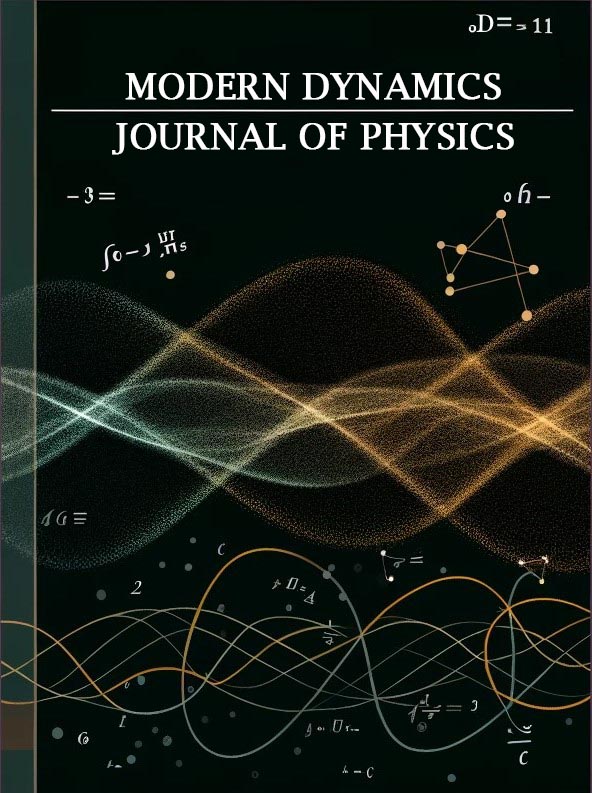ISSN: 3048-8265
Plagiarism Policy
Modern Dynamics Journal of Physics is committed to maintaining the highest standards of academic integrity and ethical publishing practices. Plagiarism, in all its forms, constitutes unethical publishing behavior and is not tolerated by the journal. This policy outlines the journal’s procedures for detecting, preventing, and addressing plagiarism.
Definition of Plagiarism: Plagiarism is defined as the practice of taking someone else's work or ideas and presenting them as one’s own without proper acknowledgment. This includes, but is not limited to:
• Verbatim copying of text from other sources without citation.
• Paraphrasing substantial parts of another’s work without proper attribution.
• Using ideas, data, or results from another source without permission and proper acknowledgment.
• Self-plagiarism, which involves reusing significant portions of one’s own previously published work without proper citation.
Manuscript Submission: Authors must ensure that their submitted work is original and has not been previously published or under consideration for publication elsewhere. All sources of data and ideas must be properly cited. Authors are required to submit a plagiarism declaration form along with their manuscript, affirming that the work is free of plagiarism.
Plagiarism Detection: The journal employs various plagiarism detection tools and software to screen submitted manuscripts for potential plagiarism. These tools compare the manuscript against a vast database of academic content to identify similarities and overlaps.
Review Process:
• Initial Check: Upon submission, each manuscript is screened for plagiarism as part of the initial editorial assessment. Manuscripts with significant plagiarism issues are rejected immediately, and the authors are informed of the reason.
• Peer Review: Reviewers are also encouraged to report any suspected plagiarism during the peer review process. If plagiarism is suspected, the editorial team conducts a thorough investigation.
Addressing Plagiarism: If plagiarism is detected at any stage of the submission or publication process, the following actions are taken:
• Minor Overlaps: For minor cases of plagiarism (e.g., a few sentences), authors are asked to revise the manuscript and properly cite the original sources.
• Significant Plagiarism: For significant cases of plagiarism (e.g., substantial copied content), the manuscript is rejected immediately. The authors are informed of the rejection and provided with evidence of the plagiarism.
• Published Papers: If plagiarism is detected in a published paper, the paper is retracted, and a retraction notice is published in the journal. The authors’ institutions and relevant authorities may also be notified.
Consequences for Plagiarism: Authors found to have committed plagiarism face severe consequences, including but not limited to:
• Immediate rejection of the manuscript.
• Prohibition from submitting to MDJP for a specified period.
• Notification of the authors' institutions and funding agencies.
• Retraction of published articles with a formal notice of retraction.
Appeals: Authors who believe that their manuscript was wrongly accused of plagiarism may appeal the decision by contacting the editorial office with a detailed explanation. The editorial team reviews the appeal and makes a final decision based on the evidence provided.
Promoting Ethical Writing: The journal promotes ethical writing practices by providing guidelines and resources on proper citation and referencing. Authors are encouraged to familiarize themselves with these guidelines to avoid unintentional plagiarism.
